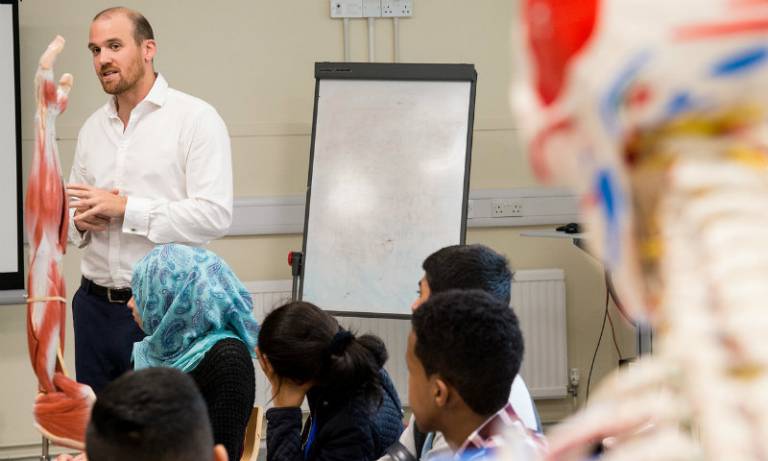Maths for medics: new UCL programme to help doctors keep pace with computer revolution
14 February 2017
A new one-year interdisciplinary degree at UCL will give the next generation of doctors the skills to transform medicine by harnessing computer power.

Extraordinary developments in computers and processing power are affecting almost every field of medicine: vast new data sets link an individual’s genetic makeup to behavioural and social data and medical history; miniaturisation and price reduction are boosting point-of-care diagnostics and real-time physiological monitoring; new imaging modalities are driving the emergence of computational anatomy; robotics are transforming surgery; genomics, proteomics and metabolomics are creating precision medicine.
Benny Chain, UCL professor of immunology, realised that a new approach is needed to take advantage of this revolution. He says: ‘Generating, storing and classifying data are not enough. The real benefits can only arise from the ability to extract the underlying biology and pathology which are embedded in this data. This ability, in turn, requires mathematical modelling : the ability to recognise and formulate the rules and relationships which allow the data to make sense, which enable us to predict the future based on the past, and which ultimately will guide and inform the clinician and establish best medical practice.’
UCL is one of the top medical schools in the UK, with a long-established commitment to train doctors who are at the cutting edge of medical advances. Professor Chain’s new BSc Mathematics, Computers and Medicine will capitalise on the wealth of interdisciplinary research which already occurs at UCL to offer student research projects at the frontier between biomedicine, computers science and mathematics. As such the programme chimes well with Connected Curriculum, the framework that aims to make sure that all UCL students are able to learn through participating in research and enquiry at all levels of their study.
The course, which launches in the academic year 2018/2019, will be interdisciplinary, and will be run jointly by the Faculty of Medical Sciences and the Faculty of Engineering. It will provide teaching in advanced mathematics (capitalising on the fact that a substantial portion of the entry into medical school have an A in Mathematics at A level), computer programing, mathematical modelling and analysis of big data. The one year degree will be offered as an option in the third year of the medical school curriculum, when all students at UCL have to choose a BSC in a subject of their choice.
Read Professor Chain’s blog post ‘Mathematics, computers and medicine’, about the new programme.
 Close
Close

